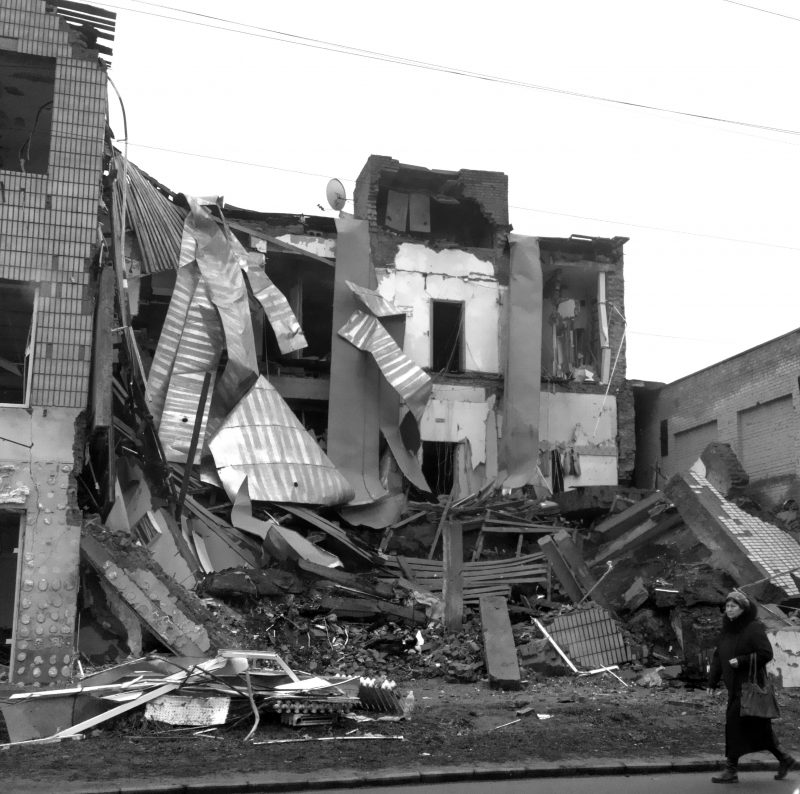David Pérez Esparza researches security, crime and violence. He has participated in #PropuestaMx, which aims to enrich security and human rights policies in Mexico. He is currently pursuing a PhD in the Security Sciences Department at University College London.

Last week, Mexico’s President Enrique Peña Nieto was on a three-day state visit to the UK. This official visit – which included audiences with the Queen, Prime Minister David Cameron and other high-ranking politicians in the UK – is special for both countries. In fact, 2015 is being promoted as a “dual year” celebrating their bilateral relations.
Mexican flags all over London are clear signs of this celebration. On Tuesday 3 March, Her Majesty made a speech referring to the “long and enduring friendship” between the UK and Mexico. “We remain proud to have been the first European country to recognise Mexican independence”, she said. Events happening during this dual year of Mexico in the UK and the UK in Mexico are the tangible result of this long-term relationship.
Nevertheless, what British and Mexican citizens would normally have seen as positive is now raising concerns on both sides of the Atlantic Ocean. President Peña Nieto, who took office in December 2012 with a very intense economic reform agenda, is now doing his best to avoid talking about what Mexicans care about the most: insecurity, corruption and human rights violations. These issues are also not a significant part of the bilateral agenda.
Not surprisingly, many activists interested in the human rights situation in Mexico are upset with British officials for allowing this to happen. In the Joint Declaration signed by the two countries during the visit, for instance, human rights concerns accounted for just one short 62-word paragraph in the 3,100 word document. The UK has been very strict with other countries in similar conditions and activists simply do not understand why Mexico would be considered an exception.
With this in mind, organisations like Justice Now, Yosoy132, London Solidarity Group, Amnesty International and many others prepared demonstrations outside Downing Street during the official visit. The demand remains clear: Mexican authorities should commit to transform institutions and make the rule of law a reality, not just a nice expression to be used in public speeches. To British authorities, the demand is to raise pressure to promote such a transformation.
Some might ask whether the protesters are exaggerating. But recent figures regarding insecurity, corruption and human rights violations in Mexico prove that they are not. Crime data, for instance, does not support any possible optimistic position. Although the national official death toll has fallen, the reduction has been slight and only in some regions. And homicides are not the only problem. Other crimes are increasing even in formerly peaceful regions. The Federal Government has admitted that kidnapping, violent robberies and extortion rates have risen dramatically, a situation particularly evident in some regions.
Data reveals these facts clearly. In 2011, the national victimization survey (ENVIPE) revealed that more than 23,000 crimes had occurred for every 100,000 inhabitants. By 2014, ENVIPE reported more than 28,000 – a substantial increase of 18 per cent. Nearly 11 million households reported that they have been victims of crime at least once during 2013. The cost of crime is also increasing. From this survey, it can be estimated that the economic losses sustained by the Mexican public associated with criminal activity represent 213.1 billion pesos, or 1.27 percent of Mexico’s total GDP. All official attempts to diminish the issue fall under the weight of reality: for the fourth consecutive year, there were more crimes than the previous year.
In addition to the increase in violent crime in some regions, there are other problems that President Peña Nieto did not address in London. Recently, a scandal erupted when it emerged that the President’s wife, Angelica Rivera, had bought a luxury mansion from a subsidiary of the company associated with Mexico’s first high-speed rail contract. And in December 2014, it was revealed that Mexico’s Finance Minister, Luis Videgaray, had bought a mansion with preferential conditions from a subsidiary of the same company. Both of these cases represent conflicts of interest that should not be neglected.
Perhaps worse than these allegations of corruption, Mexico’s human rights record reveals that there is nothing to celebrate but much to protest. During the previous administration (2006-2012) an estimated 80,000 people were murdered in Mexico and more than 20,000 disappeared. Torture has increased by 600 per cent between 2003 and 2013, and arbitrary detentions and fabricated evidence cases are still common. Furthermore, Ciudad Juárez, in the Northern state of Chihuahua in Mexico, was the most violent city in the world for three consecutive years.
Unfortunately, since President Peña Nieto came into power, problems have persisted and in some cases become worse. Some estimates suggest that 25,000 more have been killed during the first 14 months of his administration. Hundreds are missing and more than 150 illegal mass graves have been found. Furthermore, impunity levels remain remarkably high and many other problems like gender-homicides and the widespread killing of journalists are officially ignored.
Probably the most high-profile case is the one of the 43 students of a rural teaching college in Ayotzinapa who disappeared due to alleged local police complicity with organised criminals in September 2014. Although civil society around the world campaigned widely on the issue, the Federal Government in Mexico closed the investigation without any conclusive evidence. President Peña Nieto stated at the time that Mexico “cannot remain trapped in [this case]”. He later proposed a policy response to tackle corruption among police and local government, however there are questions as to whether these changes will be voted in before elections in late 2015.
It is true that Mexico is much more than just a country experiencing problems with crime and human rights violations. It is equally true, however, that reality cannot be ignored and problems will not be solved on their own. This is the best opportunity for Britain to do more and enhance accountability, rule of law and human rights protection as key elements of the “dual year” agenda.

